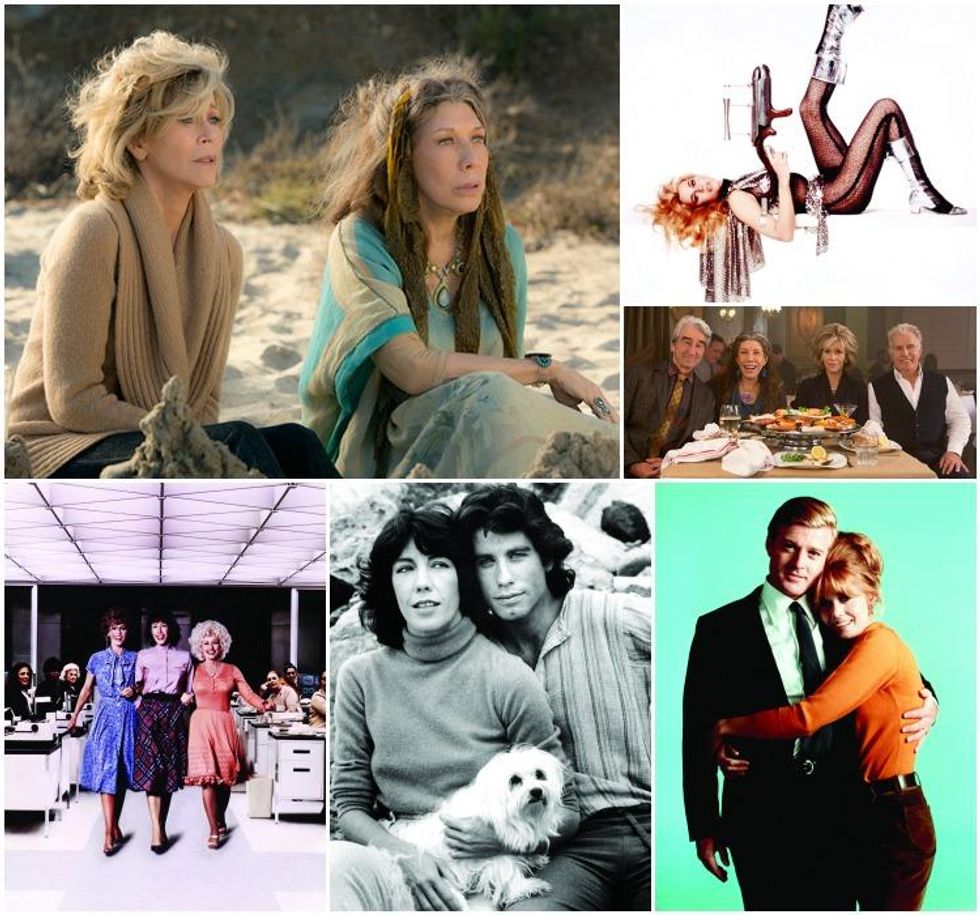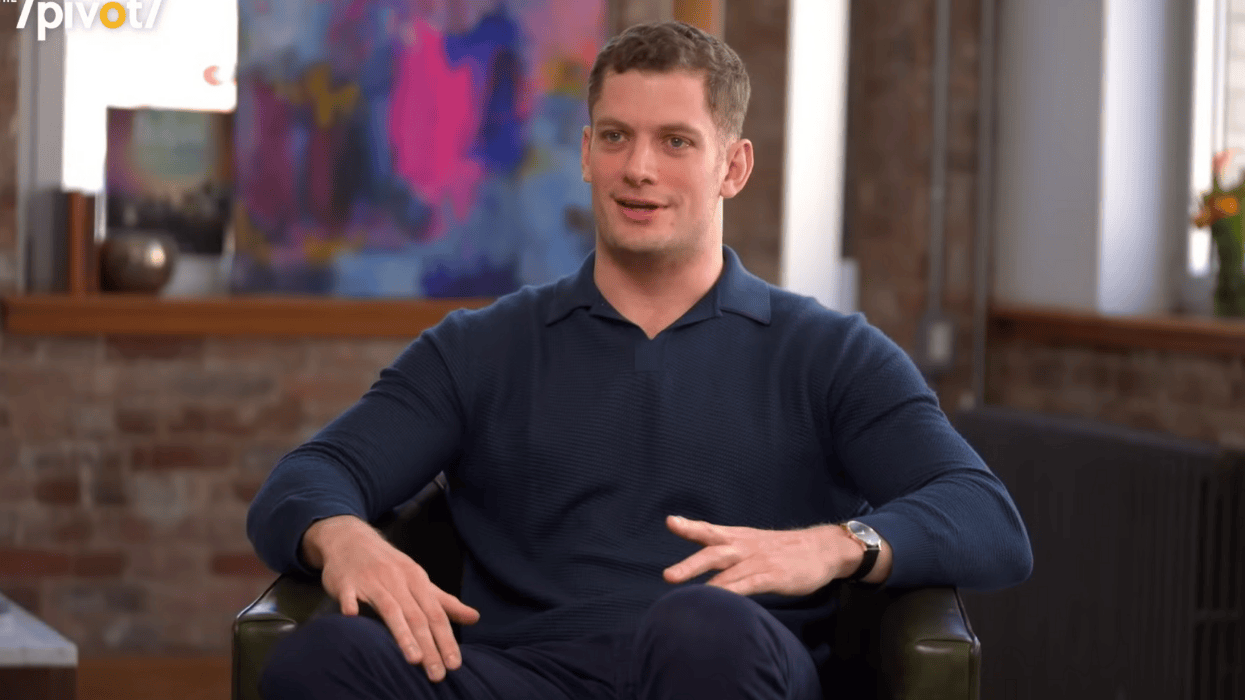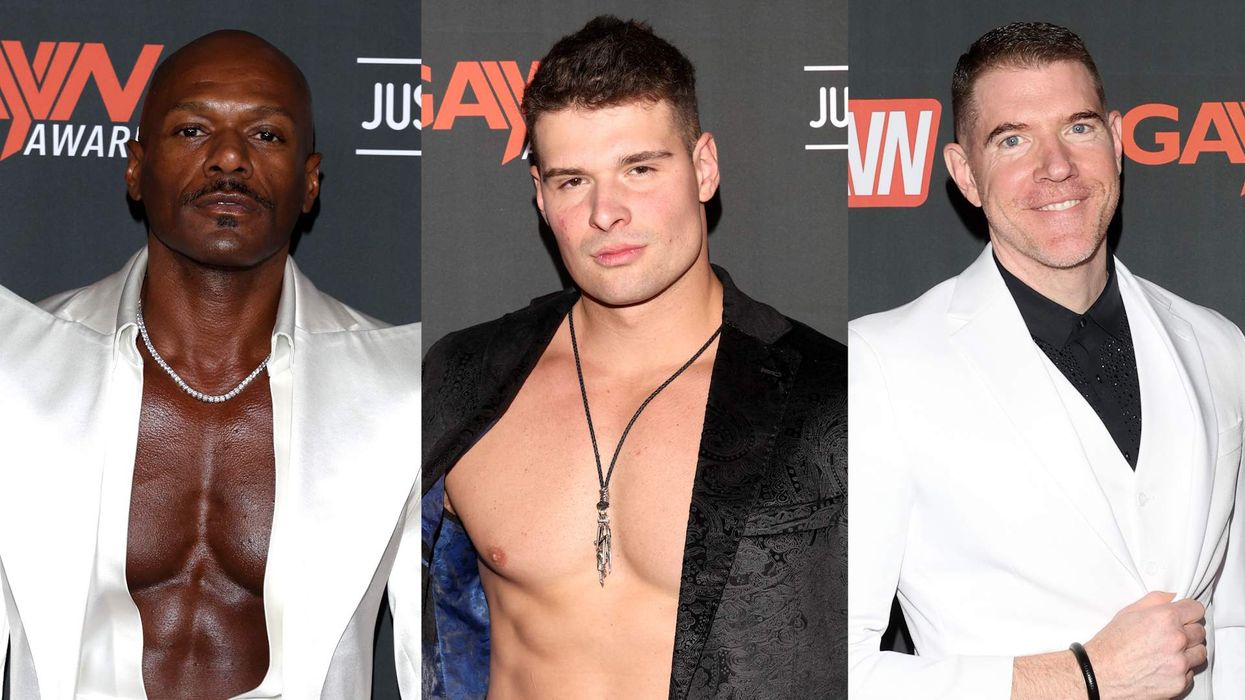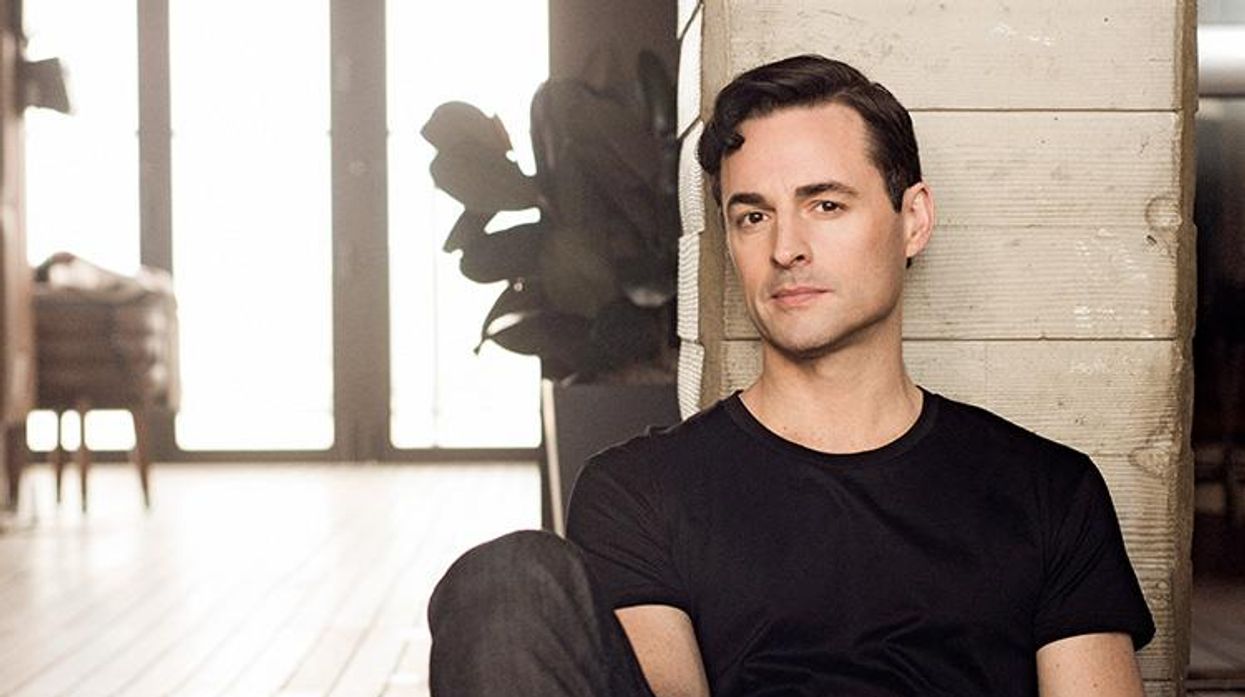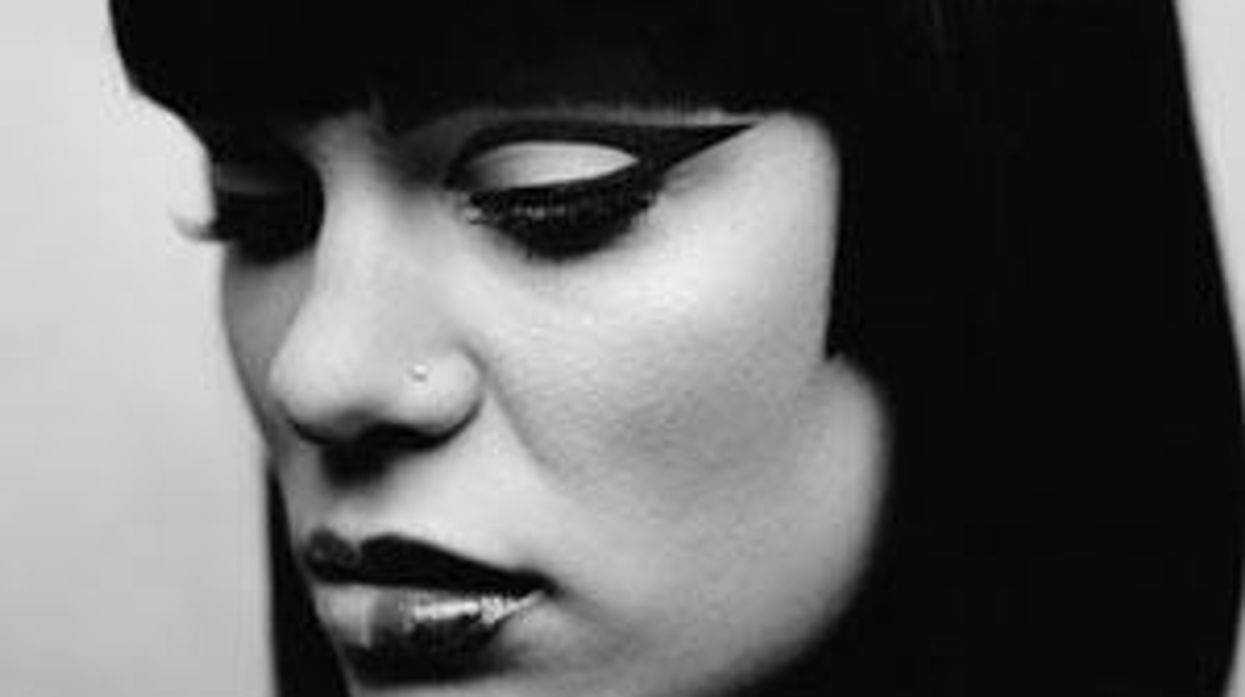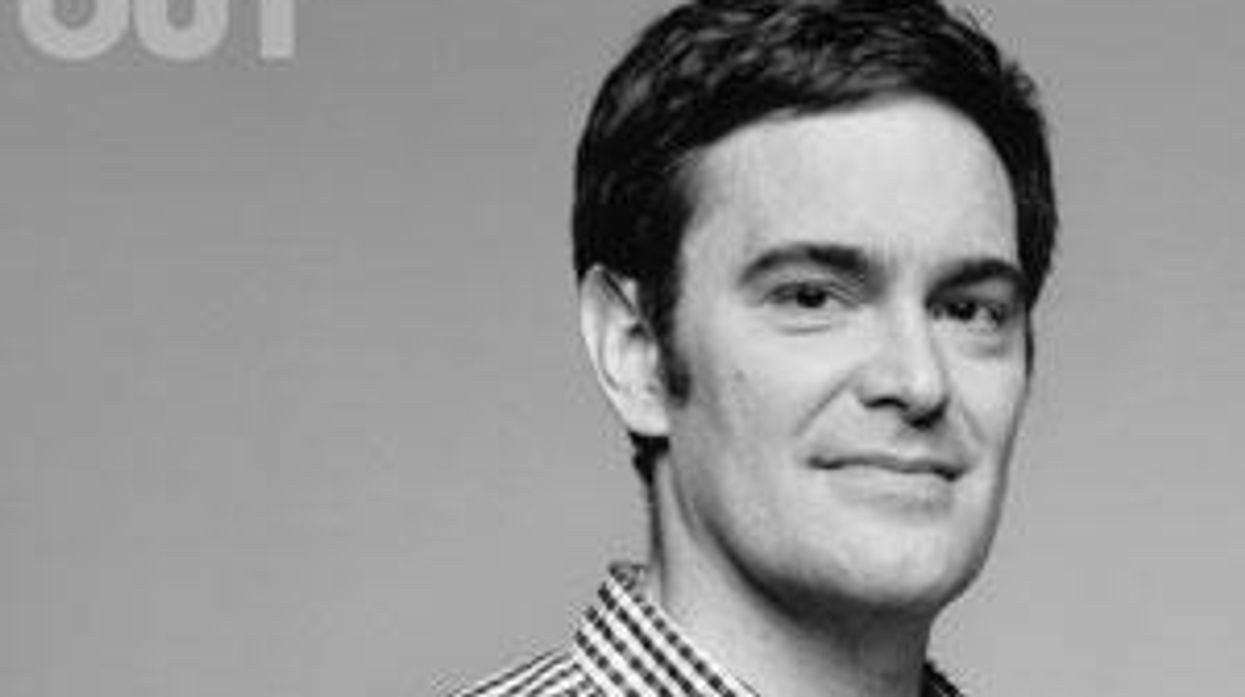Played by Fonda and Tomlin, respectively, the title characters Grace and Frankie are two very different women who are brought together after their husbands abandon them for each other. The show premieres May 8 on Netflix.
Jane Fonda: I've wanted to make a movie about older women for a long time, because I'm an older woman, and because older women are the fastest-growing demographic in the world. We're ignored in the media. When [Friends co-creator] Marta Kauffman came along with this concept of Lily and me together, it was a dream come true, because I felt that we could deal with issues of aging as opposed to the stereotypes, added to which are the issues of two older gay men who decide to get married. What does that mean, and what does that mean to their families?
Lily Tomlin: Having come from 9 to 5 35 years ago, when we were talking about equity in the workplace, to now playing who we really are--older women--just feels natural.
Fonda: One of the things I find so special about it, particularly later in the first season, is that we get to do things together as two women who are becoming friends. That's very rare to see in movies or television: real friendships between women. So often women are portrayed as backbiting. There's a scene where we go out on the town and I come downstairs and she's got her usual schmatta on, and I tell her how important it is for her to get dressed up and make herself look good. I start fooling with her hair, and tell her what beautiful hair she has, and I pull her hair back and I see her ears and say what pretty ears she has. Then I compliment her on her breasts, which actually are very beautiful. I'm thinking, You never see this, in culture, women loving on each other. It was so much fun. It made me feel so good.
Tomlin: I feel like I've known Jane all my life. We may not have been in proximity to each other that often, but when we reconnect it's like we were always there.
Fonda: I hope with our series, people will feel less alone. Women who have not seen themselves in the culture will feel less alone, and maybe older gay men as well.
Out: Why is it that we are seeing stronger female roles and characters on television, but not so much in film?
Fonda: Films are way more expensive to make, and consequently there are fewer feature films that are character-driven--fewer than ever, in fact. There's a lot riding on the movies being successful, and the studio heads, who are white men, feel more comfortable casting actors and hiring directors who look like them. Television can be a little more risk-taking because it's less expensive. It's a smaller screen. You're not so worried about making $100 million, so you can be more real. You can have women, who represent the majority of human beings on earth, actually appear sometimes on television.
Tomlin: The audience for film, the larger audience, is dominated by the male viewer and a young audience. They'll go see an adventure, or a big, high-tech movie, and those are going to star men. It's a kind of catch-22.
Out: Is it fair to say that within the industry you're both seen as strong-minded actors who have made it on your own terms, and that this is maybe challenging for some people?
Tomlin: I think it was more of a factor when we were younger and we were vying for certain kinds of roles. So if you're sexually objectified, which women vying for those parts might be, the males in charge would be more threatened by women who knew what they wanted or were going to fight them on something. I didn't have such an issue with that because I wasn't really thought of as a leading lady, but I find most people think, or have thought, that I was difficult to work with, and I'm not difficult. I'm a real team player.
Fonda: Speaking of being suitable for a role, is it true that they offered you my role in [Neil Simon's] California Suite and you turned it down? [Lily nods.] Fuck! I wasn't his first choice? Well, how do you like that?
Tomlin: I never wanted to break that news to you.
Fonda: You turned it down because you didn't want to wear a bikini?
Tomlin: No.
Fonda: Is that right?
Tomlin: Yeah, and then you took on the role and invented the damn workout.
Fonda: That's right! Well, well, well.
Tomlin: You know, Neil Simon tried to get me in one of his movies for a long time, but there was always something offensive in the script. Wearing a bikini was one issue. I don't even remember you having to wear a bikini.
Fonda: I was in a bikini, and then I covered it up real quick...
Tomlin: Was that the movie Jack Weston was in too?
Fonda: It was with Alan Alda.
Tomlin: But was Jack Weston in that one, where he had a prostitute in the bedroom? They treated the prostitute like a hunk of meat, like they'd throw her under the bed and wrap her in a sheet and they'd stick her in a closet. I was just horrified, but anyway.
Fonda: Well, I turned down--what was the movie Jodie Foster won an Oscar for?
Tomlin: Oh my God, Nell?
Fonda: No, it was where the rape happens. Sherry Lansing [the producer] offered me that role and I just didn't want to do violent movies. You know, I turned down The Exorcist.
Tomlin: Oh my God.
Fonda: William Friedkin reminded me of that.
Tomlin: Is that Linda Blair's part?
Fonda: No, it was Ellen Burstyn.
Tomlin: See, you were the first choice. Most of the time you were the first choice [Laughter]. I think I can safely say that in all the films I did, I was the first choice.
Fonda: Well, in Grace and Frankie and 9 to 5, you certainly were.
Tomlin: I was not the first choice in Nashville. Louise Fletcher was supposed to do that role.
Fonda: You're kidding.
Tomlin: No, that's where the deaf scene came from. Her parents were deaf, but she had done Thieves Like Us, which is one of my favorite Altman movies, and her husband was one of the producers, and he and Altman had a falling-out, and the next thing you know, Altman offers me that part, because we had the same agent, Sam Cohn. I had just come off of Laugh-In, basically, so people thought I was Ernestine. Only Altman would have even deigned to cast me in that role, but I was not the first choice for Nashville.
Fonda: So, you know what? When I hear that you were the first choice for California Suite, I get paranoid and think, Maybe Neil Simon didn't like me in Barefoot in the Park and he didn't want to work with me again.
Tomlin: Were those two movies close together?
Fonda: Not really.
Tomlin:Ten years apart.
Fonda: At least [laughter.]
Clockwise from top left: Fonda and Tomlin in Grace and Frankie; Fonda in Barbarella; Grace and Frankie cast; Fonda and Robert Redford in Barefoot in the Park; Tomlin and John Travolta in Moment by Moment; Fonda, Tomlin, and Doly Parton in 9 to 5.
Out: It's interesting that Jane said she gets paranoid. I wonder if women and gay men have a connection in that too, because you don't necessarily feel you have the privileged place in the room.
Fonda: Well, when I wrote my memoirs and I assumed I was writing for women, what absolutely bowled me over was the number of gay men who responded as if I was writing about them. That really was a big aha for me, and it made me realize that between women and gay men there are a lot of points of commonality--feeling like they're supposed to be something they're not.
Tomlin: Well, I've always thought gay audiences are much hipper than straight audiences. I think they see really clearly into the dichotomy of the society. When I see Lypsinka perform, my heart just breaks, because I think of that little redheaded boy with that high forehead, in Mississippi, when he's about 5 or 6 years old, looking at the women around him and so essence-ing them: all the hypocrisies of being a women in the culture, and pretending to be this and pretending to be that, and all the neuroses. When I saw Lypsinka, years ago, it was just a revelation for me.
Out: Was there a moment like that for you, Jane?
Tomlin: She's had such a life, it's unbelievable. She skinny-dipped with Greta Garbo. I can't get that out of my mind.
Fonda: And Michael Jackson [Laughs]. Lily, just listening to you right now, it occurs to me that most comedy grows out of a foundation of pain. It's kids in school who weren't good in sports or maybe weren't beautiful, or weren't what they were supposed to be, and discovered they were funny. So they kind of built up their funniness, but it covered up loneliness, maybe, and troubles. I think gay people looking at funny women know that there's a thread of pain that goes through it, and they can identify with it. Am I trying too hard here?
Tomlin: I can say that if pain was the foundation, it was a general pain of humanity.
Fonda: Existential.
Tomlin: Yeah. I lived in an older apartment house, and many different people lived there, some educated, some totally uneducated, some political, some apolitical, some conservative, some very liberal, some communistic, married people, single people, divorced people, gay people that nobody acknowledged. There was a couple of women who lived in our building, when I was a small child, and all I remember was that one of the women wore men's shoes. And there was a man who beat his wife and everybody ignored it. My mother would say, "That's not our business." I would think, No, why can they just stand here and let this woman scream? But all of them were funny, all of them were sad, all of them were brave, all of them were weak and cowardly, and they did it at different times. And I saw them all, and I hung out with them. I was in love with everybody, even though they had bad things about them too.
Fonda: You've been rehearsing all your life.
Tomlin: I was, I was. Kind of rehearsing.
Out: What's the worst advice anyone's given you?
Fonda: Well, the worst advice I ever got was the only advice my mother ever gave me: Don't marry a musician. [Lily laughs.] I was 7 years old when she said that to me. I have no idea why she said it, but she was absolutely serious [Laughs].
Tomlin: I don't remember any early advice whatsoever, because there was nobody who I could take advice from, but later I went to Bob Altman because we had been talking about a project, and I took it on, and I said, "I just want to get rid of the cinematographer--it just doesn't work at all." He said, "Nah, just giggle and give in." I hesitate to advance that idea, because it sounds very anti-feminist, but I've never forgotten that: "Giggle and given in."
Fonda: My second husband, Tom Hayden, and I had a statewide political organization called the Campaign for Economic Democracy. This was in the '80s, during a recession, so we were trying to figure out what kind of a business we could go into to make money to support the work. And the best advice that I ever got was from the guy that started the Delancey Street Foundation. He said, "Never go into a business you don't understand."
Tomlin: That explains the great surge in prostitution, I guess.
Fonda: Oh my God, that came from left field.
Tomlin: I had a good idea that I was going to tell you, but I forgot it. It related to something that you said.
Fonda: Oh well, onward.
Out: You've both played lesbians in recent movies: Lily in Grandma, coming out in August, and Jane in This Is Where I Leave You. Now you play two wives of men who run off with each other. Have you spent any time thinking about why we're in this moment of seeing life from perspectives that aren't usually catered to?
Tomlin: I guess because it's more accepted as a role. It seems like it is an easier thing to do, culturally.
Fonda: It's all because of the fierce social movement for gay rights.
Tomlin: That was inherent in what I was saying.
Fonda: I didn't get it [Laughs]. So subtle, it was almost invisible. I just want to give credit to the movement. Any changes that happen on any kind of level that matters and ends up manifesting culturally is because people...you're making a face at me.
Tomlin: I think that inherently I just assumed that we all understood that, and I said it's more acceptable, OK?
Out: Lily, being an out gay woman who was celebrated at the Kennedy Center Honors, you're part of that movement. Is that meaningful to you?
Tomlin: The Kennedy Center award was just another underscoring of exactly what Jane said. Ironically, Jane, because of her history with the anti-war movement, is less acceptable as an honoree than I am, as a gay woman. It's kind of a stunning turn of events to realize that she's paid this price for so long. I mean, I'm on the nominating committee and I did not nominate myself, but I always nominate Jane when nominations come up.
Fonda: Well, thank you, Lily. Do you feel like a role model?
Tomlin: No. I mean we're sort of role models, but I think the gay community is far too sophisticated to be indebted to role models.
Out: The idea that Jane, because of her anti-war activities, is an outlier in her own way is interesting. It brings us back to both of you representing outsiders, women who are not part of the establishment.
Fonda: "Outlier" is a good word.
Tomlin: And that we've both had careers on our own terms, basically.
Fonda: We've survived anyway.



